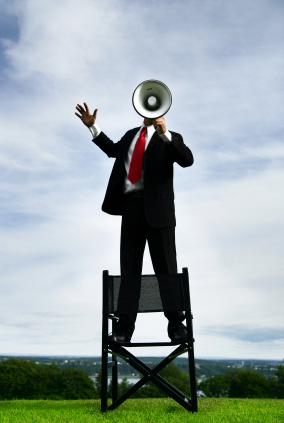Wrath.
It was a long time before I understood it. Even longer until I could say that I am deeply thankful for it. That sounds weird, doesn't it? That I love and appreciate the wrath of God.

Wrath means different things to the lot of us.
The Wrath of Kahn. Honestly, the ear bud monsters seemed more fearful than the mastermind Kahn. But it is always great to see William Shatner at his best: cocky.
The Grapes of Wrath. I remember reading this in Steinbeck book in high school. Though I don't remember much outside of the dust bowl and the chapter chronicling a turtle crossing the road. Apparently it's an American classic though. And I support America.
Sermons preached/screamed about God's wrath. Why is it than when we think about the wrath of God, we picture ourselves in an old traditional church, seated on a hard wooden pew on the receiving end of warnings of sin, hellfire, wrath and judgement? And brimstone. What is brimstone, anyway?
Whether we like it or not, the word wrath is associated with negative context of scaring the hell out of people. To fill them with a sense of fear of an angry God, so they would either (1) cower before him in fear or (2) reject him for not being loving enough.
So it's easier to just not talk about it. Lay off of the wrath sermons. Take a break from the hellfire and sulfur.Bet let me be clear in this:
I never understood the angry wrath of God until I connected it with the overwhelming love of God.
God's wrath is intertwined with God's love. They are inseparable. The answer is not to scream about the wrath of God. Not to carry signs in crowded cities reminding people of their pending doom. Nor is it appropriate to neglect to mention his wrath. To sweep it under the proverbial rug. Beauty is found when the two cross.
"For the wrath of God is revealed from heaven against all ungodliness and unrighteousness of men, who by their unrighteousness suppress the truth...Though they know God's decree that those who practice such things deserve to die." Romans 1
"And do not fear those who kill the body but cannot kill the soul. Rather fear him who can destroy both soul and body in hell." Matthew 10
Why should a God of love be also be known as a God of wrath? It seem so contradictory, so antithetical.
But imagine this. How terrible, how awful and wrong if we served a loving God who never angered, never raised his fist against the truly disgusting of the world?What if our God never took vengeance for sex enslavers?
What if our God dismissed the sins of Nero who would set Christians on fire to light his garden?
What if our God pardoned those who slaughtered the Jews?
If our God refused to punish the abominations that torture the innocent, then our God would be no God of love. Mark Buchanan explains it better with this childhood story,
"My brother and I and some friends were playing street hockey in the wide curve in front of our house, when the neighborhood bully wandered down the street. This was a kid I'd been having some trouble with. He was three years older than me, and big. He'd often wait for me on a pathway I had to walk on my way to and from school. Then he'd shove me, punch me, push me down.
On this occasion, he grabbed my bike and started horsing around on it. I yelled at him to stop. "Make me," he said. I went over. He threw my bike on the ground and then started to thrash me. I fell under the blows.
And then it stopped.
I looked up and saw my oppressor hovering against the sky, but now his face was terror-stricken. My father, who had been watching the bully's antics from our window, had come to my defense. He grabbed the boy by his coat collar and lifted him straight off the ground, like a man hanging from a noose, and shook him.
"Don't you ever," my father bellowed, "hurt my son again!"
It was enough. Here was a love I could count on to protect me, to defeat my enemies, to make things right. I basked in that for weeks. His wrath had made my father heroic in my eyes. I could sing in the shadow of his wings.
Strange, but true. I learned to rest in my father's love because of his wrath."
God shows his love by his rescuing. If not now, then one day.
One day.
One day, all will be made right.
One day, evil will be punished for sins hidden, consequences escaped, justice perverted.
One day, God will pour his wrath onto a deserving world.
In the pioneer days, out on prairies, sometimes a fire could catch and spread faster than a horse could travel. To survive, a quick thinker would begin to burn the ground and grass around himself, and then cower on the scorched ground. The flames would then burn around the spot, leaving the survivor safe.
In the same way, one day, God will pour out his wrath over all the earth. The wicked will be punished, destroyed. Yet there is a place where his wrath already fell. It fell at the Cross of Jesus and scorched the ground. And there, at that spot, is the only place of safety. Survivors will be found cowering at the spot where the wrath of God had already fallen. There is the only place of safety, where God's love and God's wrath crossed.
I never understood the angry wrath of God until I connected it with the overwhelming love of God.



